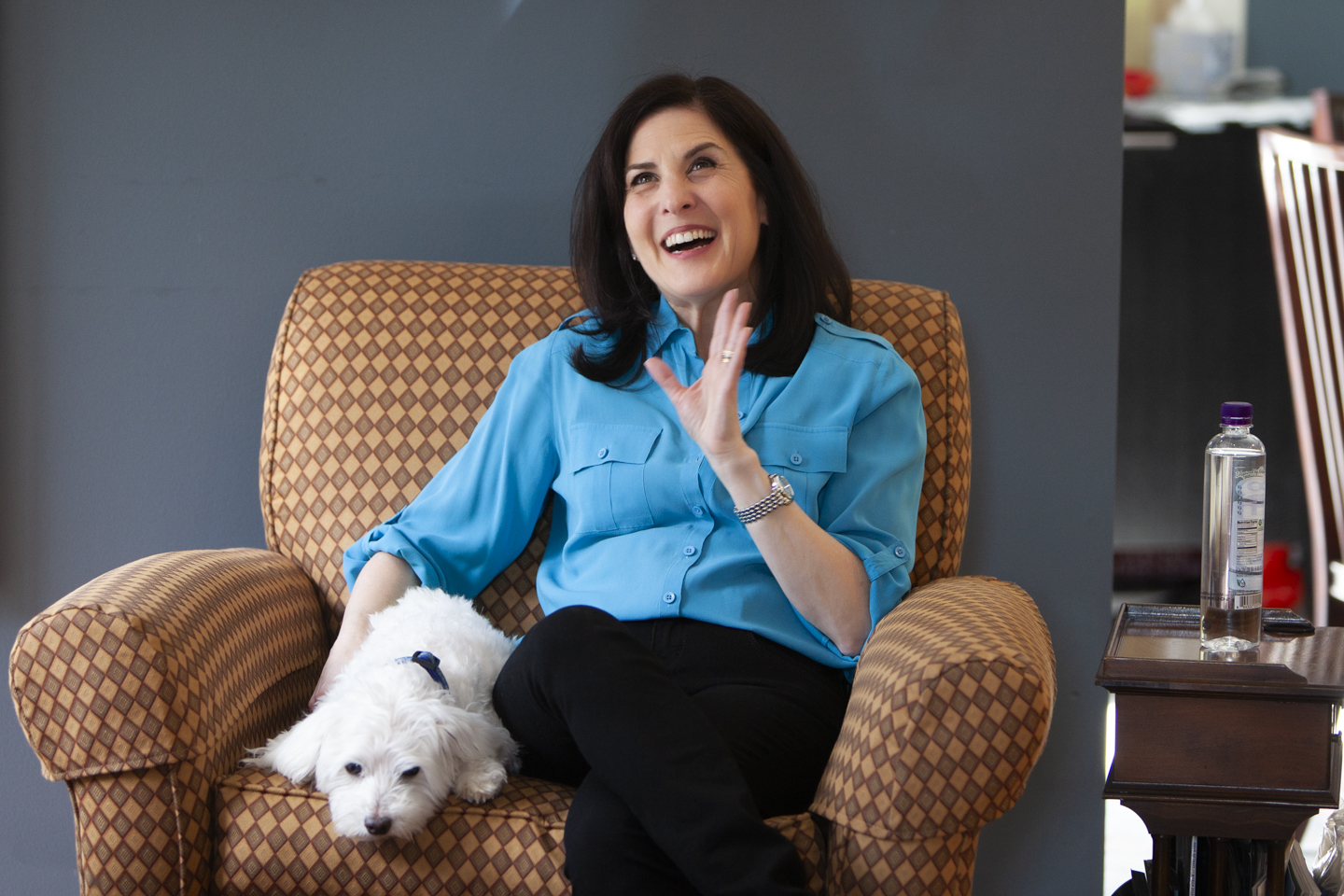We Need to Talk . . . and Listen, Too
By Vivian Henoch, Editor myJewishDetroit
July 1, 2019
by Vivian Henoch
The power of talk about mental health . . . just think about how often it starts with a single conversation: between parents and their children, between teens and their peers, between teachers and health professionals. Think about having those conversations; stop and listen; see how voices can raise awareness and change minds at home, in school and in the social landscape of a community.
We Need to Talk
So, let’s talk . . . about peer pressure and the anxiety we see in our students
Let’s talk about helicopter parenting.
Let’s talk about the use and abuse of social media.
Let’s talk about resiliency and finding support networks.
What started as the Youth Mental Health Initiative in Jewish Detroit is a vibrant community- wide program today. We Need to Talk, sponsored by the Jewish Federation of Metropolitan Detroit, grew out of a community “needs assessment” survey in 2016 revealing an alarming prevalence of mental health issues among the youth in the Jewish community. In 2018, Federation launched We Need to Talk – a website – with videos and links to resources as a first step: to reduce stigma; to raise awareness about youth mental health; and to provide ready-access to resources for those in need of care.
A portal for storytelling and insights shared by teens, parents and family members, teachers and mental health professionals – the website www.wn2t.org has recently expanded its video library to include easy-listening and browsing in podcast.
Tune in and join Todd Krieger, Senior Planning Director at the Jewish Federation, as he and guests explore some of the hottest topics of the day, underscoring reasons for youth mental illness. In the first nine episodes in the series, Todd is joined by Julie Fisher, an educator with more than 25 years of experience working with parents and students around the country on topics related to 21st century relationships and youth mental health. Julie is the author of The Resiliency Puzzle, a handbook for understanding how kids can develop the skills they need to cope with adversity and persevere to gain character and fortitude to succeed.
In future podcasts, Todd will be joined by other experts and community members who will share their own personal stories, providing insights and tools for young people and their families struggling to achieve mental well-being. While some segments will cover topics in brief, others are expected to be more in-depth profiles and conversations.
Why a podcast? The power of a teaching moment
Todd explains: “During our conversations with agency executives – and in keeping with our promise to deliver programs and tools most beneficial to the agencies – we learned that many parents were seeking helpful information in short chunks. In particular, in those precious few minutes in a busy day when parents might be waiting to pick up their children at school or other activities, there are opportunities for teaching moments – spaces for listening and learning, finding a piece of the puzzle or a tool that is useful to better understand the complex challenges that our kids face today.”

Ambassadors for mental health
“We see our role as advocates for our kids and ambassadors for reducing the stigma still associated with youth mental illness,” says Dr. Lilly Jacobson, a clinical psychologist in private practice at Children’s Hospital of Michigan and Chair of Federation’s Youth Mental Health Advisory Committee. “We Need to Talk is our community call to action. Our goal is to educate the community about current mental health issues and the warning signs of mental illness, and to reach young people (and those who love and influence them) with positive messages of self-worth.”
To date, We Need to Talk has touched the lives of hundreds of families in Jewish Detroit. In collaboration with Friendship Circle’s UMatter, Jewish Family Service, Jewish Day Schools, BBYO and Tamarack Camps – and with the generous support of the community, the program has launched:
- “FRED Talks” – parlor meetings for parents
- Community-wide events including an evening with best-selling author Frank Bruni (Where You Go is Not Who You’ll Be) and Julie Lythcott- Haims (How to Raise an Adult)
- Suicide prevention training (safeTALK) and Applied Suicide Intervention Skills Training (ASIST) for more than 600 professionals who work with youth in the community
- Additional staffing and resources for existing mental health programs at Tamarack Camps and Jewish Family Service
There’s so much more to learn, so let’s keep talking . . . visit the website, watch, listen . . . and stay tuned.




